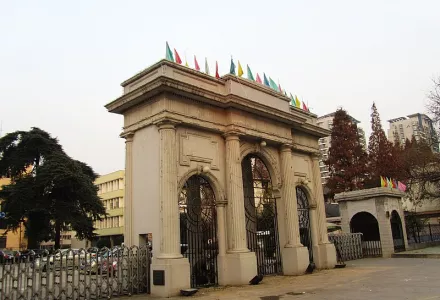The Party School: The Kuomintang's Central Political Institute and the Transformation of Chinese Foreign Policy
Speaker: Anatol Klass, Ernest May Fellow in History & Policy, International Security Program
This presentation follows the careers of a group of Chinese foreign policy experts who were chosen as college students in the 1930s to receive specialized training at the ruling Nationalist Party's civil service school. The speaker traces this cohort from the shared experience of an experimental educational program meant to instill the expertise necessary for modern diplomacy, through its bifurcation after the 1949 revolution. Almost half of the Kuomintang-trained experts stayed in Mainland China to work for the foreign policy apparatus of the new communist state while the other half followed Chiang Kai-shek to Taiwan and continued to work for the Republic of China.
Everyone is welcome to join us online via Zoom! Please register in advance for this seminar:
https://harvard.zoom.us/meeting/register/tJAqfuCtqDIjE92P1HubU-5jia7a5zl1QVWj




